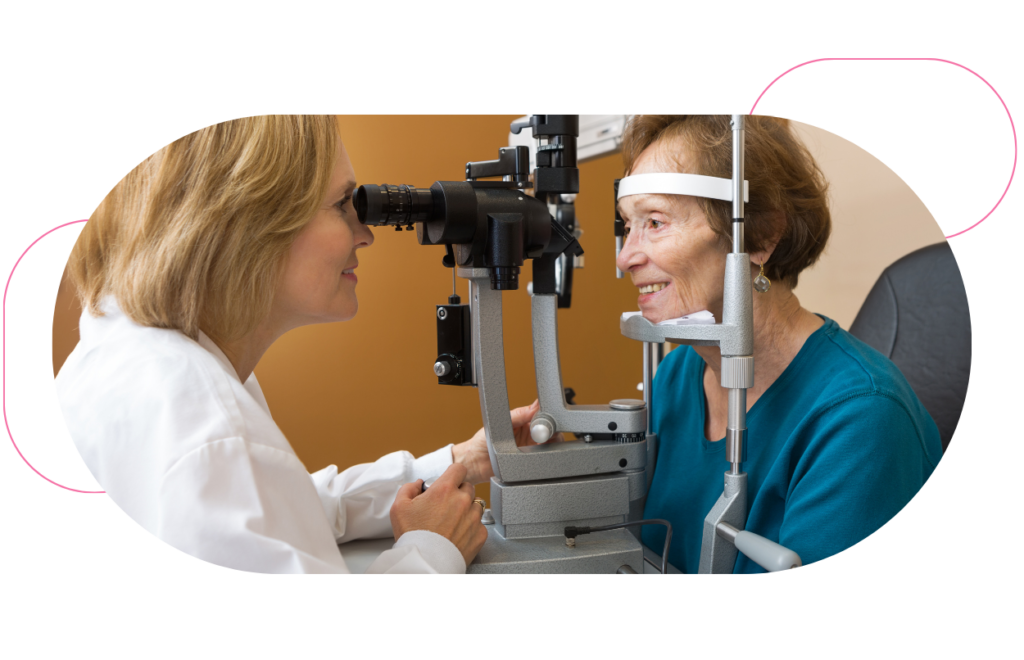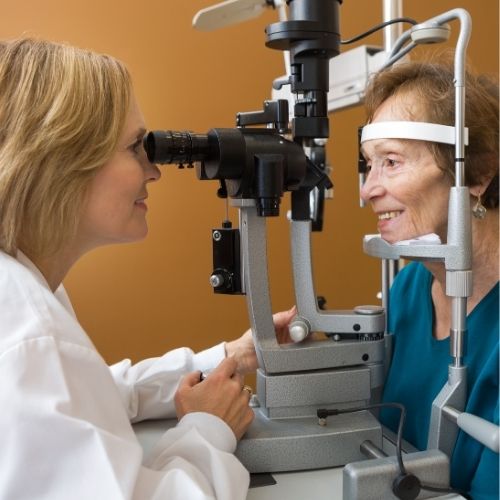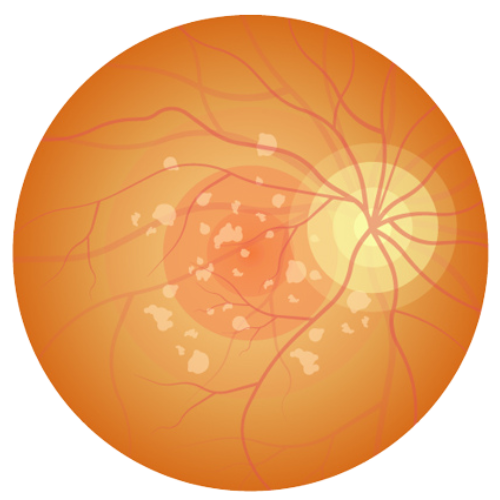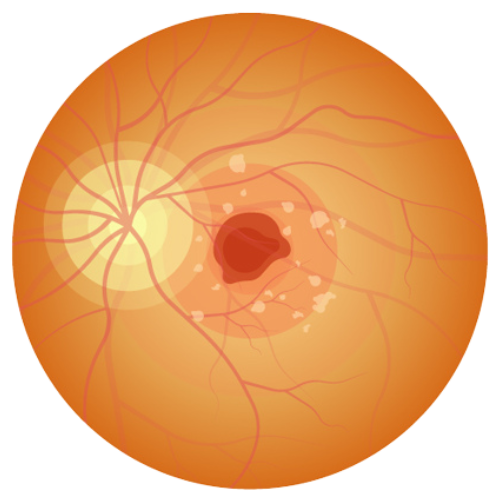MACULAR DEGENERATION
DEFINITION & DIAGNOSIS

MACULAR DEGENERATION
DEFINITION & DIAGNOSIS


WHAT IS MACULAR DEGENERATION?
Macular degeneration, also known as age-related macular degeneration (AMD), is a chronic eye condition that affects the macula, which is the central portion of the retina. The retina is the light-sensitive tissue at the back of the eye, responsible for transmitting visual signals to the brain. The macula is essential for central vision, allowing us to see fine details and perform tasks such as reading and recognizing faces.
With AMD, the cells of the macula become damaged which leads to gradual vision loss. There are two types of AMD: Dry AMD and Wet AMD.

TWO TYPES OF MACULAR DEGENERATION
DRY MACULAR DEGENERATION

Dry AMD is one of the most common forms of macular degeneration, accounting for about 80-90% of cases. In dry AMD, small white or yellowish deposits, called drusen, accumulate in the macula. Drusen are created of lipids and other proteins and overtime, the proliferation and presence of drusen can lead to a gradual loss of central vision
WET MACULAR DEGENERATION

Wet AMD is a more advanced form of macular degeneration. It is less common than dry AMD making up 10-15% of cases. Wet AMD leads to more severe vision loss and can progress quite rapidly. In wet AMD, abnormal blood vessels grow beneath the retina and macula. These blood vessels become weak and leak fluid and blood into the macula, causing distortion, scarring, and rapid vision loss.

WHAT CAUSES MACULAR DEGENERATION?
The macula contains the highest concentration of photoreceptors (cells that detect light) in the retina. These cells are extremely active sending electrical signals to the brain which in turn is interpreted as vision. This high level of biologic activity creates free radicals that can cause tissue damage. Our body uses anti-oxidants to neutralize the free radicals but over time damage can still occur.

